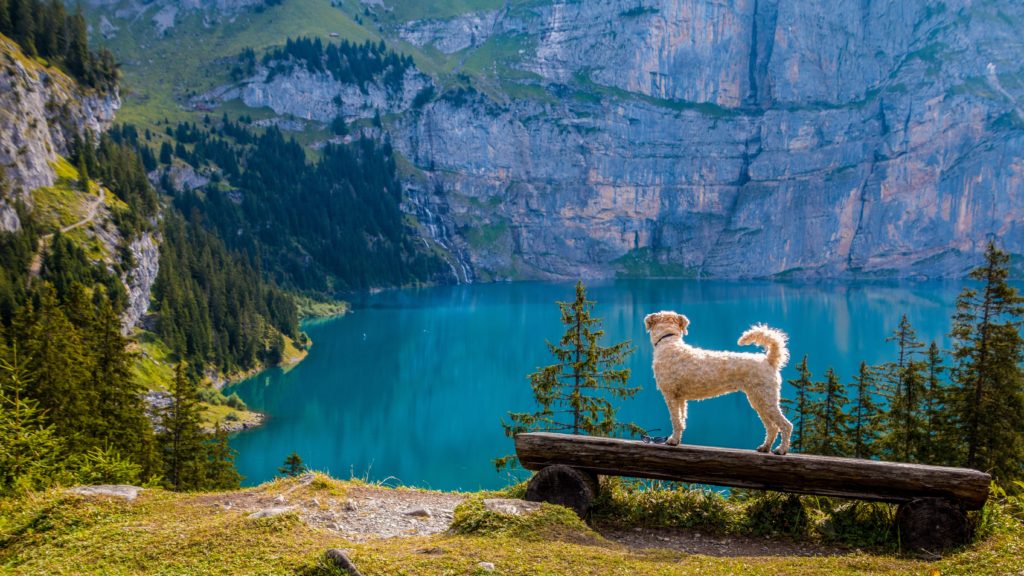
Dogs make great camping companions. Most dogs love being outdoors and spending time with their owner. And they make good guard dogs while you’re roughing it in nature. It’s a bonding experience and you both can derive significant physical and emotional benefits from it.
If you’re a seasoned camper, you know how important it is to stay safe while you’re in the woods or out on the plains. It’s important to take precautions to keep your furry friend from getting into trouble or getting away in a remote area where you may never find him. Use common sense, and keep your pooch on a leash.
There are countless sounds and smells in the wild that could tempt your pet to tear into the woods at top speed. Nothing kills a fun camping trip quite like having to stop what you’re doing, pack up, and tromp off looking for your dog in the dark. Fortunately, there are many ways to keep your pet safe without having to compromise your good time.
Do your homework
It’s always a good idea to learn something about the area where you’ll be camping before you hit the road. If you’re headed to an official campsite, make sure dogs are allowed and find out if there are any restrictions or rules that you need to follow. Camping in undeveloped areas means you’ll face fewer regulations. If you’re camping on your own in the wilderness, try to find out if there have been any wild animal sightings or attacks in that area. Are ticks a major concern? The U.S. Forest Service provides valuable information that can keep you from heading into difficulty without realizing it. Fred and Suzi Dow have compiled information about thousands of campgrounds and hundreds of national forests and grasslands.
Vaccinations
If you’ll be camping in a national park or private campground, make sure your dog’s had his vaccinations, which is a requirement at many sites. If your pet has any prescriptions, don’t forget to take them with you. Be sure to take precautions against ticks and fleas, which pose a threat to your dog’s health anywhere (yours too!). Take along pest collars, and examine your dog’s fur carefully for signs of invasive species before you head back to civilization.
Utilize technology
A runaway dog is a nightmare for any camper. Minimize the likelihood of losing your dog by getting a nightlight for his collar, in case you need to find him after dark. Bring an extended leash or running cable so he can move at will and sniff around without getting loose. You can purchase a GPS collar for about $30, which allows you to track your pet with a high degree of accuracy via a website or mobile phone app. There are also devices that allow you to talk to your dog through a speaker on his collar, or you could place an LED light on his collar, which can be activated via a smartphone app.
There’s a reason it’s called ‘the wild’
Even if you’re staying in a popular location, you still need to be vigilant about wild animals. Bears, wildcats and coyotes are just a few of the wild animals you and your dog could run into on your wilderness sojourn. This is one very good reason your dog should always be leashed. Remember, many breeds will follow their instinct and attack another animal, or allow their curiosity to get the better of them and run off to investigate. Either way, it’s a recipe for disaster.
A barking dog can attract or provoke a raccoon or other dangerous animals that might just be nosing around for scraps. Be sure to take along a muzzle if your pooch barks at every breeze. If you do come face to face with a wild animal, dog behavioral specialist Beverly Ulbri says: “You have two choices—come at them like a predator with an object like a bat, or wait for them to simply go away.”
Being a responsible owner means being diligent about protecting your dog. Keep him leashed is crucial, especially if you’re in a remote location.
Photo via Pexels
